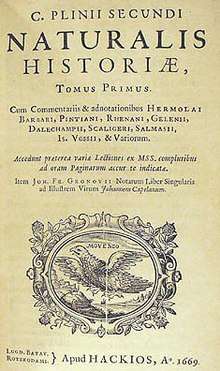Grain of salt

"(With) a grain of salt", (or "a pinch of salt") is an idiom of the English language, which means to view something with scepticism or not to interpret something literally.[1]
History
Hypotheses of the phrase's origin include Pliny the Elder's Naturalis Historia, regarding the discovery of a recipe for an antidote to a poison.[2] In the antidote, one of the ingredients was a grain of salt. Threats involving the poison were thus to be taken "with a grain of salt", and therefore less seriously.
The phrase cum grano salis ("with a grain of salt") is not what Pliny wrote. It is constructed according to the grammar of modern European languages rather than Classical Latin. Pliny's actual words were addito salis grano ("after having added a grain of salt").
An alternative account says that the Roman general Pompey believed he could make himself immune to poison by ingesting small amounts of various poisons, and he took this treatment with a grain of salt to help him swallow the poison. In this version, the salt is not the antidote. It was taken merely to assist in swallowing the poison.
The Latin word salis means both "salt" and "wit", so that the Latin phrase "cum grano salis" could be translated as both "with a grain of salt" and "with a grain (small amount) of wit". [3]
The phrase is said "with a pinch of salt" in British English and said "with a grain of salt" in American English.[4]
References
- ↑ Webster's New World College Dictionary
- ↑ "Take with a grain of salt". www.phrases.org.uk.
- ↑ Book 23: LXXVI: 149
- ↑ "British Vs. American Idioms - Part 1". www.lostinthepond.com. Retrieved 2017-10-25.
External links
